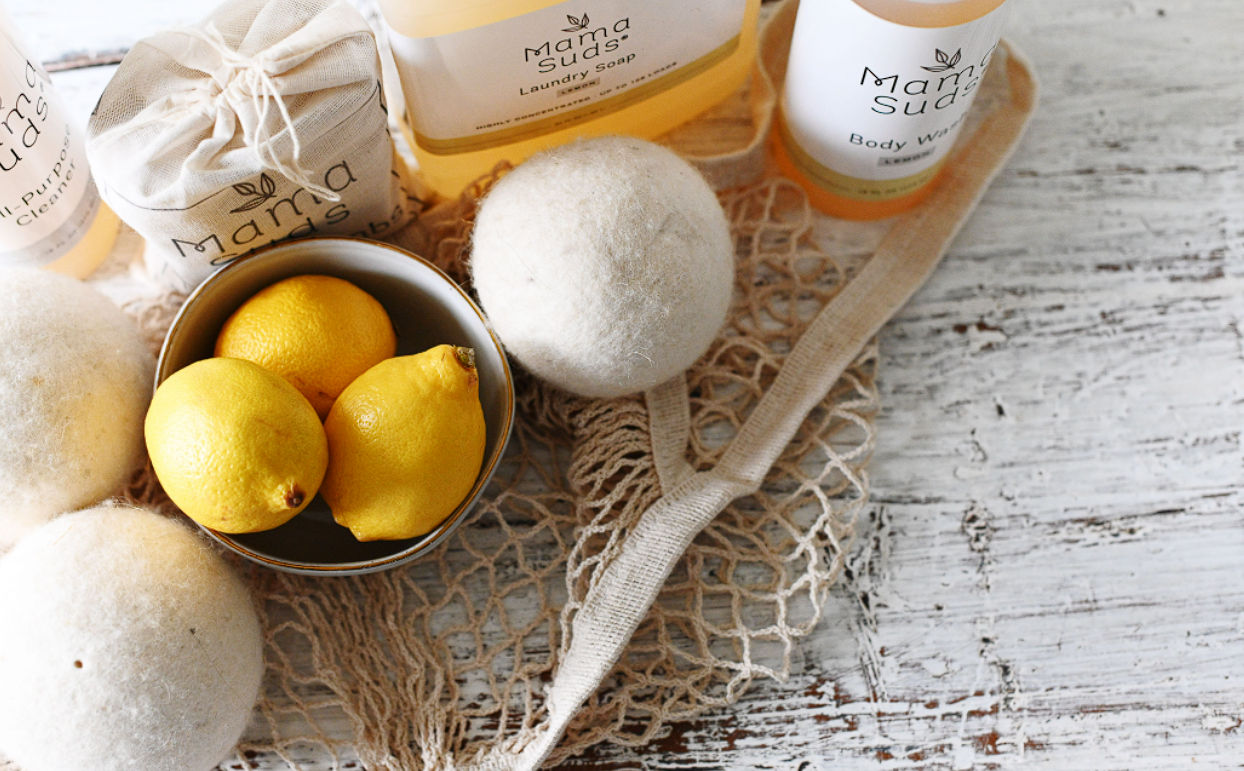
The CleanSuds Blog
Where education and truthful facts are easy to come by.
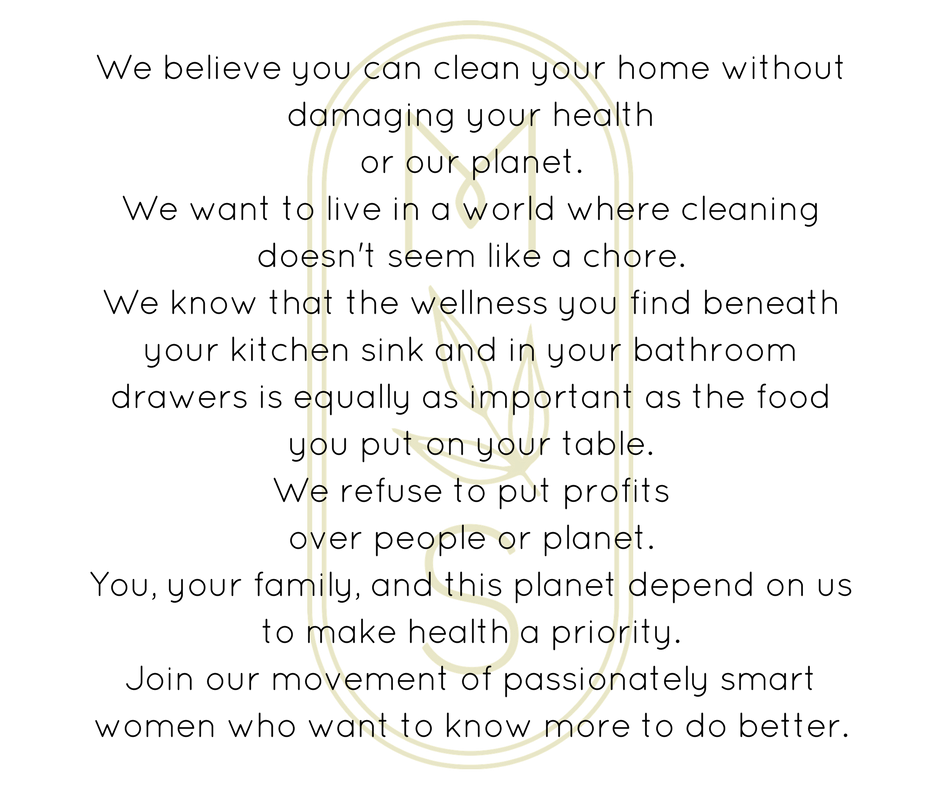
The MamaSuds Manifesto
This manifesto is a published verbal declaration of the intentions, motives, or views of MamaSuds. We'd love for you to share with your like-minded friends!
THE MAMASUDS® MANIFESTO
We believe you can clean your home without damaging your health or our planet. We want you to live in a world where cleaning doesn't seem like a chore. We know that the wellness you find beneath your kitchen sink and on your bathroom counter is equally as important as the food you put on your table. We refuse to put profits over people or planet. You, your family, and this planet depend on us to make health a priority. We invite you to join our movement of passionately smart women who want to know more to do better.

Does our Manifesto connect with you? Join our Green Living Tribe on Facebook!
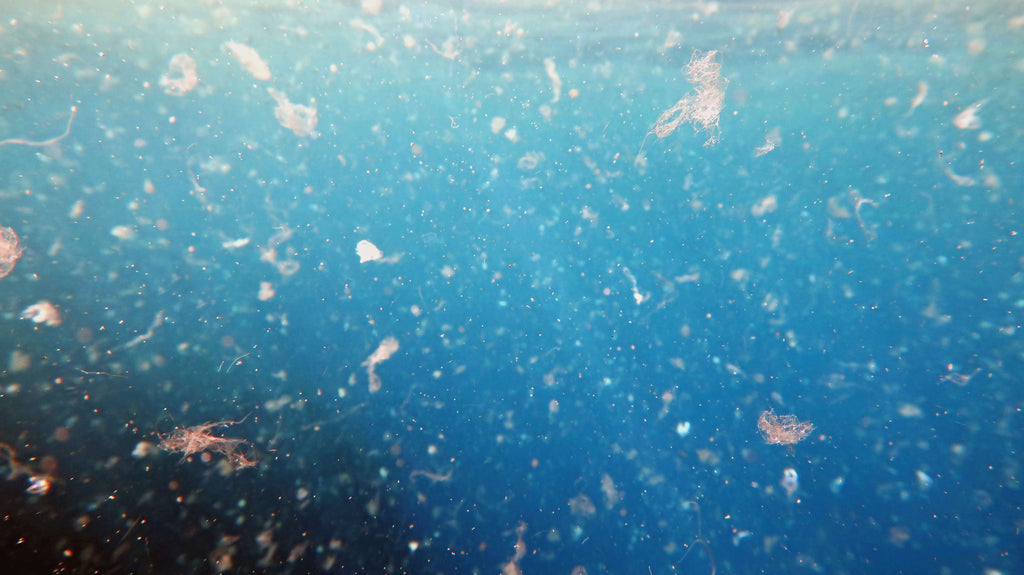
PVA is Microplastic
PVA is microplastic
Hey there, label reading moms! Today, I want to talk about something that may not be on your radar yet - PVA. PVA is a type of microplastic, and it's becoming increasingly prevalent in our environment. Here's what you need to know about PVA and why it's important to be aware of its presence. Thanks for reading!
PVA is a type of microplastic that can be found in many everyday products
Have you ever noticed those laundry pods or dishwasher pods when doing laundry or running the dishwasher? You might not have noticed that they contain tiny microplastics, like Polyvinyl Alcohol (PVA). PVA is most commonly used in laundry and dishwashing detergent products to keep laundry detergents from clumping and works as an anti-static agent in laundry. While it serves a beneficial purpose, these laundry pods are one of the main sources for PVA microplastics which can be found in many everyday items. Microplastics, such as PVA, are too small to be filtered by water treatment plants and can make their way into our waterways. It's important that we all be aware of how these microplastics impact our environment and strive to limit our consumption of them where possible.
PVA is harmful to the environment and can take centuries to break down
Polyvinyl acetate (PVA) has become increasingly popular in recent years due to its many benefits. Unfortunately, it is not biodegradable and remains a pollutant of concern. Of particular note is the fact that PVA takes centuries to break down in nature, meaning that even when used responsibly, it can linger in the environment for far too long. For this reason, it’s important to be aware of how PVA may enter our streams and rivers, potentially having an adverse effect on aquatic ecosystems. Additionally, we should take the necessary steps to reduce or replace the use of such materials wherever possible. By understanding the potential dangers that PVA poses to the environment—and taking action to mitigate them—we can all help protect our planet from further harm.
You can help reduce the amount of PVA in the environment by avoiding products using it
A big problem with microplastics is the use of polyvinyl alcohol (PVA) in many different products. It's important to be mindful about what we buy and consume; when you make a conscious choice to purchase PVA-free items, you can help reduce the amount of microplastic in the environment. Once microplastics enter down into our waterways and out into the ocean, they become a major source of environmental pollution. This can even cause microplastics to eventually enter our bloodstream! Be part of the solution and check product labels or look online for items that don't use PVA so that we can protect our environment — and ourselves.
PVA is also found in our food
We are surrounded by Polyvinyl Alcohol(PVA) in our daily lives, and oftentimes don’t even know, since it's a key ingredient in various industries. What many people may not realize is that PVA is also found in our food. PVA can act as a binder to enhance the consistency and texture of certain products such as beverages, soups and processed meats. The FDA doesn't care that you're eating microplastic; food-grade PVA has been accepted for use in contact with foods for decades and has informed people that it poses no health risks when added to humans' diets - making its presence almost unnoticeable! Yep, you heard that correctly. The FDA approves of microplastics in your food. Imagine that.
Help spread the word about the dangers of PVA and other microplastics to help protect our planet!
Microplastics are posing a big threat to life on our planet, but not enough people are aware of the dangers posed by PVA and other microplastics. These materials, which are often present in the products we use for everyday tasks such as washing dishes or clothes, get washed down the drains and into our rivers and oceans. This is immensely damaging to aquatic life, so it's up to us to boycott products that contain PVA or other microplastics and help spread the word about the threats they pose. Doing something as simple as telling your friends and family can have a huge impact - many hands make light work! We all need to take responsibility for protecting our planet, before it's too late.
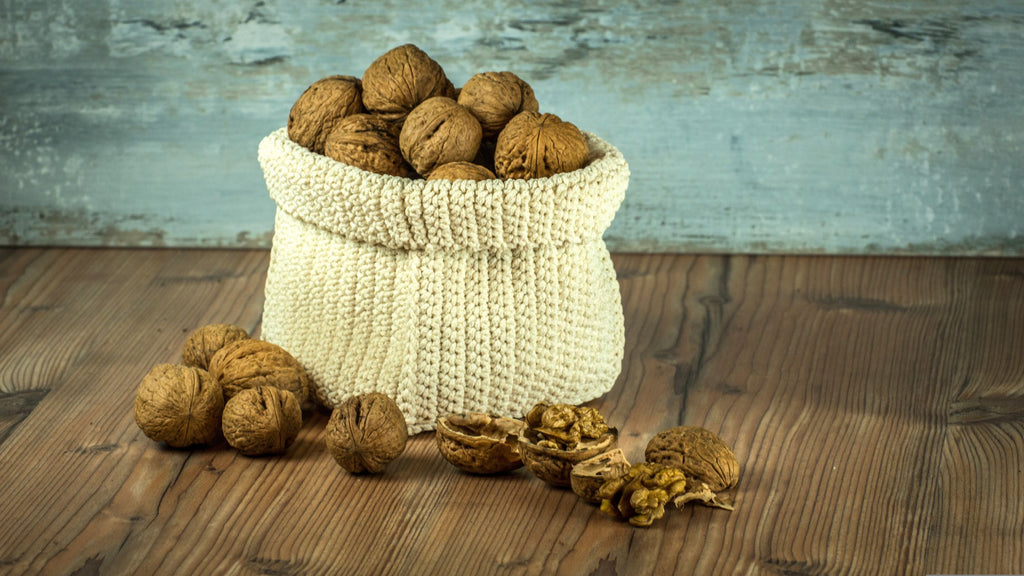
When Food Becomes Treatment: Health Benefits of Nuts and Seeds
• Nuts and seeds are rich in fibre, which can aid in feeling satiated and help reduce straining during elimination.
• Eating nuts and seeds can help protect the heart by reducing LDL cholesterol and other substances that can build up within artery walls.
• To get the most benefit from eating nuts and seeds, eat a variety of them while maintaining portion size.
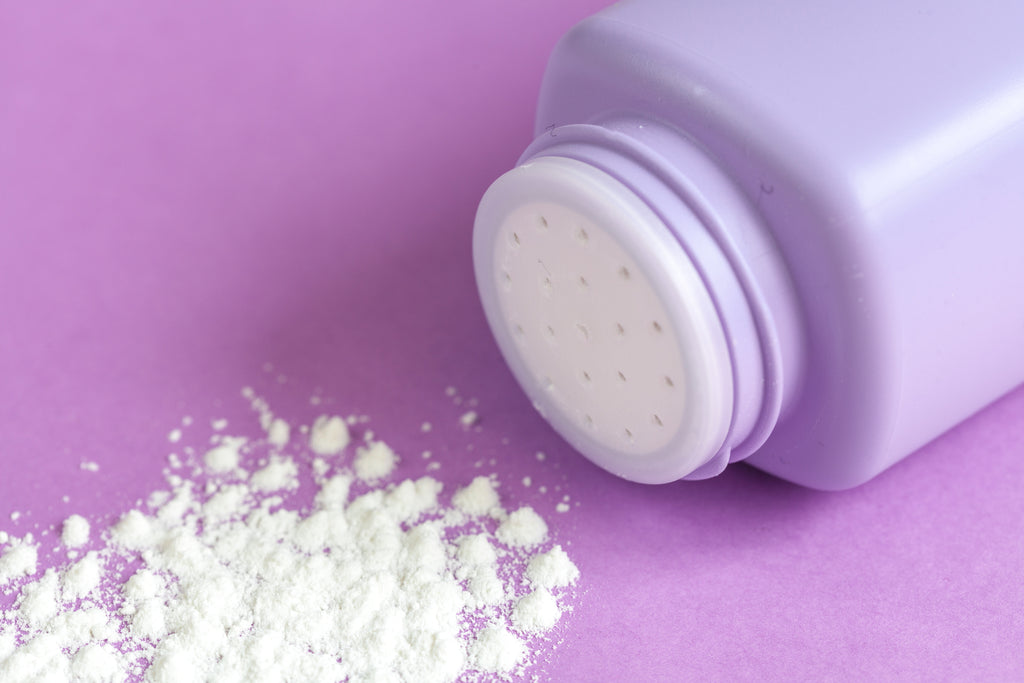
Things in Your Home That Could Contain Asbestos
• Insulation in homes built prior to 1980 is likely to contain asbestos which can cause respiratory issues, lung cancer, and mesothelioma if breathed in over a long period of time.
• Baby powder and certain cosmetics may still contain traces of asbestos, leading to mesothelioma and ovarian cancer with prolonged use.
• Gardening products have been known to have traces of asbestos from vermiculite which is often mined near asbestos deposits.
• It is best to select premixed soils for gardens to avoid breathing in dust particles that may include asbestos when mixing soils.
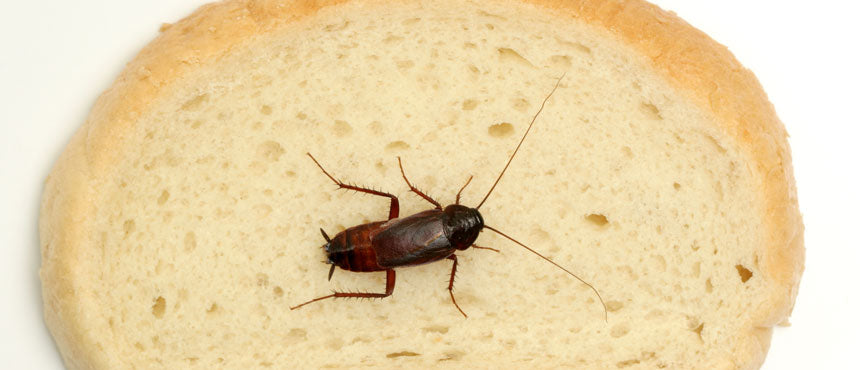
So You Have a Bug Problem: What Next?
• Block all entryways and fill in any cracks or broken screens to prevent pests from entering.
• Make sure there is no standing water anywhere, as it can be a breeding ground for bugs.
• Clean up any messes quickly, dispose of food properly and wipe down anything coming inside.
• Following these tips will help reduce the number of pests in your home.
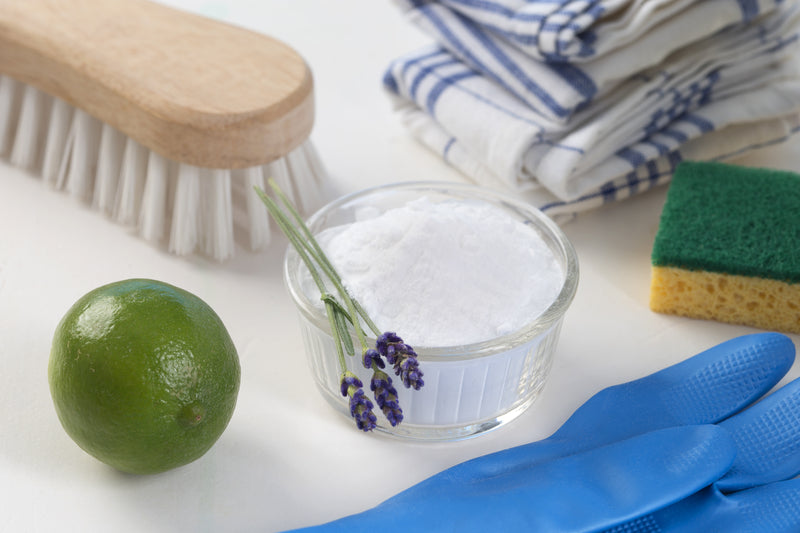
Why You Should Only Use Natural Cleaning Products
When given the option to use natural or commercial cleaning products, choose the one that is free of harsh chemicals and artificial fragrances. You'll experience a safer, cleaner home. It will be one thing that lessens your exposure to free radicals, not increases it. Here are some of the reasons why you should only use natural cleaning products:
Some chemicals cause serious diseases such as cancer
According to CNN, Project TENDR findings included neurodevelopmental disorders in people exposed to hidden chemicals inside the home. Other organizations found that the chemicals in commercial cleaners affected reproductive health.
Asthma and other breathing problems increase with some commercial cleaners
Although dust, pollen, and dander are often the root cause of respiratory problems for people and pets, some cleaners also cause breathing disorders such as asthma. Keeping harmful substances out of a home helps clear up the air so that everyone breathes better. Using a dehumidifier or even an air conditioner draws moisture from the air, which can make some respiratory issues worse.
It's economical to make your own simple cleaners at home
There are all kinds of books, websites, and videos dedicated to making everything from toilet bowl cleaner to coffee pot cleaner. Most require a few simple supplies from your pantry such as vinegar, hydrogen peroxide, salt, and baking soda. These items can be acquired cheaply at grocery stores and dollar stores. They can be used to make effective cleaners for the home for pennies on the dollar.
Green cleaners are better for the environment
Harsh chemicals are released into the atmosphere where they contribute to existing pollution. Bodies of water and the air that people breathe is filled with toxic substances that could be avoided through awareness and action. When you choose to use natural cleaning products, you're lowering your carbon footprint and risk for illness and disease.
Creating a safe, clean environment for you and your family to live and entertain in is imperative. By mindfully choosing the items you use for cleaning your home, you eliminate many of the unseen dangers that come with harsh commercial cleaning agents. You're able to clean and disinfect without harming the occupants in your home, your guests, pets, and even the planet.
Natural cleaning products are better for you, your household, and the environment. Whenever given the option to buy cleaning solutions that contain organic ingredients, choose them over commercial cleaners. You won't be exposing yourself to free radicals that way. Your home will be as clean and sanitary as it would be if you used chemical-laden multipurpose solutions, glass cleaners, and carpet cleaners.
MamaSuds offers a wide selection of natural cleaners that are truly safe for your family. Shop today!
References


